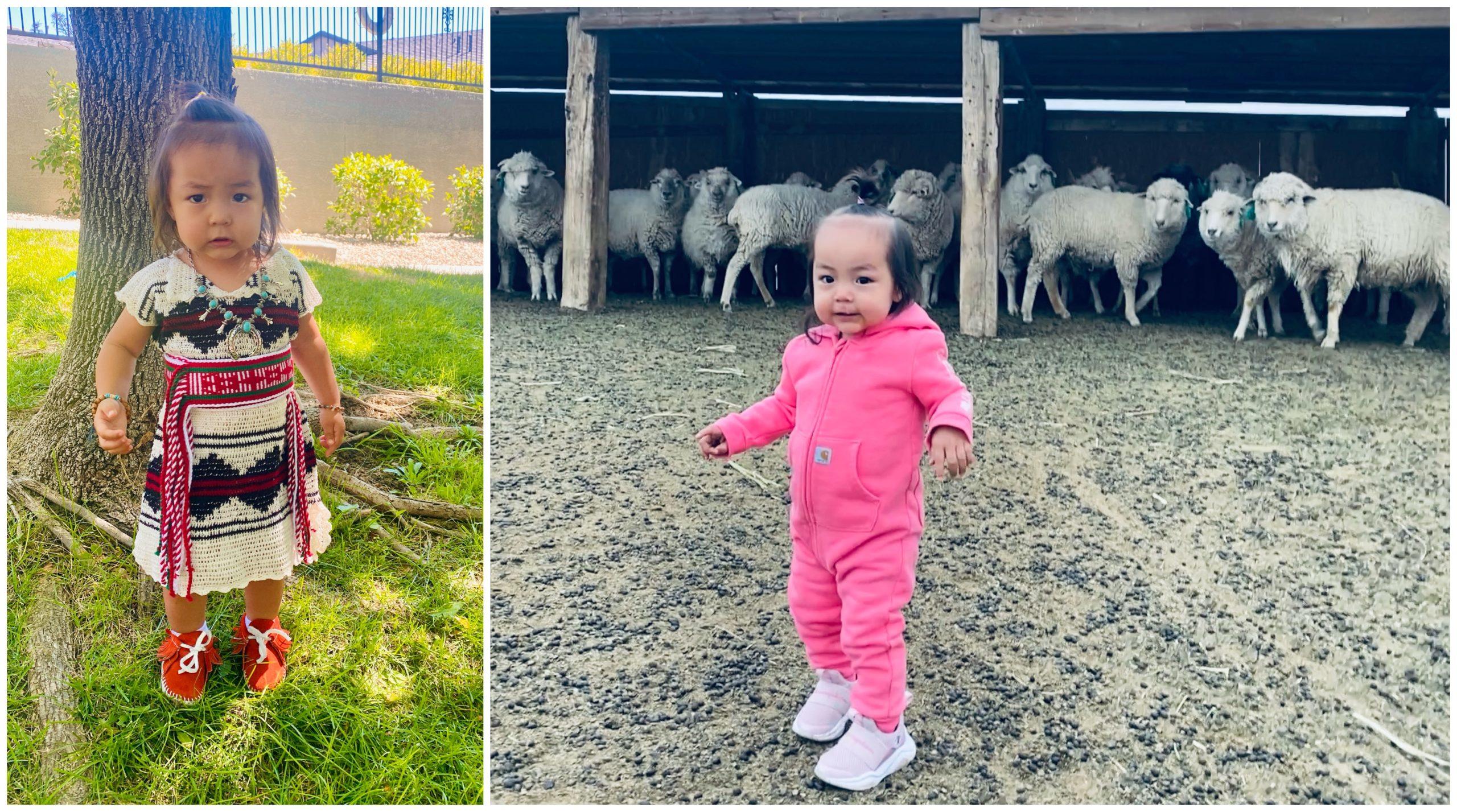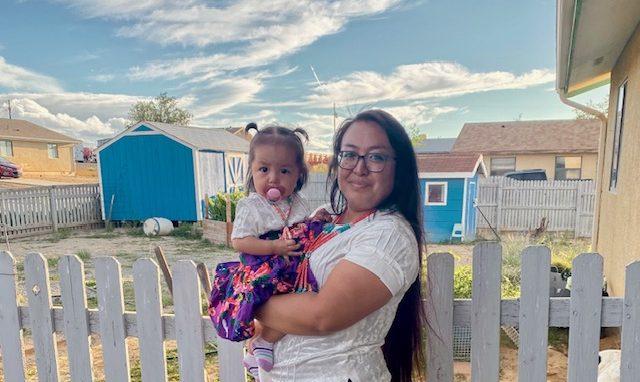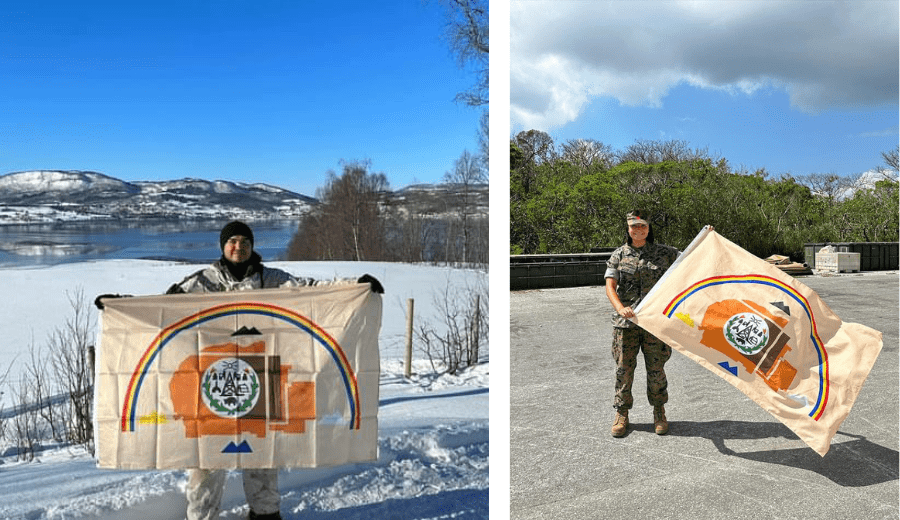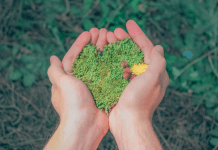As a Navajo woman, my perspective on sharing and embracing our culture is shaped by a blend of pride, respect, and a desire for understanding. I speak solely for myself, yet I hold a deep admiration for non-Native individuals who approach our traditions and heritage with respect and a genuine interest in learning. The sight of people wearing our traditional clothing, jewelry, and art fills me with a sense of honor and appreciation.
Diversity in clothing, jewelry, or art, when approached respectfully, is a beautiful manifestation of cultural appreciation.
I believe it’s perfectly acceptable for anyone to display interest in Navajo culture by adorning themselves with our traditional clothing or displaying our art within their homes. Whether it’s a delicately woven rug adorning a wall or the elegance of turquoise earrings, this admiration reflects an acknowledgment of our heritage’s beauty and significance.

It is heartening for me to witness others finding value in our culture. It sparks a sense of pride within me. I appreciate when individuals express a curiosity to delve deeper into our ways, such as learning our language. Although I can only speak from my Navajo perspective, the interest in learning even a small phrase of our language from non-Native individuals motivates me to share more about our culture and traditions.
Living in Albuquerque, I actively pass down our customs, beliefs, and taboos to my children. This serves not only to preserve our heritage but also to instill a sense of self-discovery within them. Our daily lives involve sharing and learning about our culture, from speaking the language, to dancing to traditional songs, to creating artwork and jewelry. It’s a continual journey of exploration and appreciation of our roots.

However, as much as I appreciate and encourage the sharing and celebration of Navajo culture, some boundaries should never be crossed.
Disrespecting our traditions by mocking or making fun of them is deeply hurtful and disrespectful. Additionally, when it concerns our traditional songs and ceremonies, it’s crucial to set and respect clear boundaries. These rituals hold immense significance within our culture. Their sanctity should be preserved and honored by all.
» » » » RELATED READ: Navigating Thanksgiving: A Native Mom’s Journey in Tradition « « « «
One instance of bias manifests in everyday assumptions, like presuming that all Native individuals are adept at crafting jewelry or selling frybread from trucks for extra income. While this stereotype may hold true for some, it’s uncomfortable when non-Natives inquire about where to purchase frybread. Similarly, it’s disrespectful for non-Natives to assume it’s acceptable to touch or run their fingers through our hair, regardless of its beauty. Please, respect our personal space and refrain from unwanted contact.

Furthermore, the term “powwow” should only be used when referring to specific traditional gatherings such as the Gathering of Nations Powwow. Using it casually can be offensive to Native Americans. It’s crucial to understand and respect the cultural significance of such terms.
It’s important to recognize that certain Native dressings and jewelry are sacred and reserved for personal use only. They are crafted and blessed for individual wear, not for shared use among family members or for casual experimentation. This demonstrates the profound importance and reverence we hold for our cultural attire and accessories.

The embrace of our Navajo culture by those outside our community is a testament to its enduring allure and significance. When approached with respect and genuine interest, it fosters understanding, appreciation, and a beautiful celebration of diversity.
However, it’s equally important to recognize the boundaries and maintain the dignity of our sacred traditions. Through mutual respect and openness, we can continue to share and cherish the richness of Navajo culture while fostering a deeper understanding among diverse communities.

I believe that individuals should never feel anxious or hesitant to embrace and wear Navajo traditional clothing or jewelry around Navajo individuals as long as they are worn in a respectful and appreciative manner. Representing our culture in such a gracious way fosters a sense of connection and understanding between diverse communities, and I find that it is often received with warmth and friendliness.
» » » » » » » » » » » » RELATED READ: Cinco de Mayo: Should We Celebrate It? « « « « « « « « « «
The essence of cultural exchange lies in the respectful acknowledgment and celebration of each other’s heritage. By respectfully engaging with Navajo culture, whether it’s through clothing, jewelry, language, or art, individuals demonstrate a sincere appreciation for our traditions. This act often opens doors to friendly conversations and connections, further bridging gaps and fostering mutual respect and admiration.

Ultimately, the key lies in approaching our culture with genuine interest, respect, and a willingness to learn.
By honoring boundaries, understanding the significance of our traditions, and respectfully embracing our heritage, individuals outside the Navajo community can contribute positively to the celebration and preservation of our rich cultural heritage. This mutual respect paves the way for a more inclusive and harmonious society where diverse cultures are celebrated and appreciated.
The opinions expressed in this post are those of the author. They do not necessarily reflect the official policy or position of ABQ Mom, its executive team, other contributors to the site, its sponsors or partners, or any organizations the aforementioned might be affiliated with.











